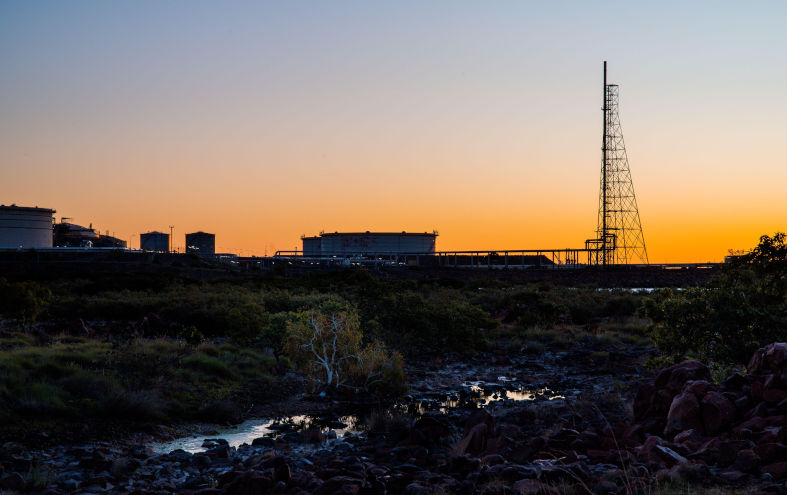'Cakes of coal, volumes of gas': Australia accused of being climate wrecker as it seeks to host COP31
June 19, 2025
Australia has been “two-faced” by pushing to host the UN-backed COP31 climate conference in 2026 even as it has been approving massive new oil, gas and coal projects, an international climate group says.
The country has been described as a “planet wrecker” alongside the US, Norway and Canada by climate advocacy group Oil Change International over the contradiction between pledges to address climate change and failure to take actual steps towards addressing the problem.
Romain Ioualalen, OCI Global Policy lead, said if Australia wanted to “be a credible COP host”, it needed to stop new fossil fuel developments and extending the working life of existing assets such as the North West Shelf gas processing facility.
“There’s a deep discrepancy between the image Australia wants to give itself through this COP bid — one of a global climate leader — and its domestic pursuit of more coal and gas production,” Ioualalen said.
“You can’t be a credible climate leader and a rich country pursuing new fossil fuel production, you have to pick.”
A decision on the host of COP31 — being sought by both Australia and Turkey — could be made this week at the start of interim climate talks in Bonn, Germany.
According to the group’s analysis, released to coincide with the start of those UN climate talks, Australia, the US, Canada and Norway form a bloc of fossil fuel producing countries in the developed world that will be responsible for 70% of planned new oil and gas expansion over the next decade.
It says the cumulative effect of these projects could result in 32 billion tonnes of carbon pollution and consume nearly one-fifth of the world’s remaining carbon budget needed to meet 1.5C of warming.
The group singled-out Australia as “one of the worst” offenders, noting the recent decision to conditionally extend the working life of Woodside’s North West Shelf gas processing facility in far north Western Australia.
“This extension unlocks the possibility of further gas extraction from the offshore Browse gas basin – which could drive significantly greater expansion than is covered by this analysis and its 2035 timeframe,” its analysis said.
“Over its 50-year life, the project would lead to an estimated 4.4 billion tonnes (gigatonnes) of climate pollution.”
At COP31 in Dubai, Australia and countries that were signatories to international climate agreements agreed to transition “away from fossil fuels in energy systems in a just, orderly and equitable manner, accelerating action in this critical decade, so as to achieve net zero by 2050 in keeping with the science.”
Ioualalen said Australia must now keep its word.
“At a time of escalating climate impacts and the crisis of multilateralism, Australia’s aggressive support for new fossil fuel production casts doubts about its commitment to the objectives of the Paris Agreement and the international commitment it made to transition away from fossil fuels,” he said.
“As COP host, it needs to ensure COP31 enshrines the end of fossil fuel expansion and an equitable phase out, with rich countries going first. It’s a matter of credibility and following climate science.”
Climate scientist David Karoly, emeritus professor of the University of Melbourne, said Australia should expect more criticism from international groups, pointing to examples like the North West Shelf decision, saying it showed Australia wanted to “have its cake, eat it, and sell it as well”.
“This is cakes of coal, volumes of LNG they’re exporting and that use what I would call creative accounting to either not count them, or to offset them in Australia’s contribution to emissions that cause climate change,” he said.
“Australia should be committed – I thought was committed to a phaseout of all fossil fuel expansion in Australia at present but was disillusioned by the policies that have been implemented over the current government and the previous national government.”
Pacific Island countries have signalled their frustration with the arrangement, with Tuvalu’s Climate Minister, Dr Maina Talia, telling Renew Economy the decision threatened the survival of his country in May, and the Pacific Elder’s Voice describing the decision as “ a slap in the face”.
The approval of the North West Shelf extension has not yet been finalised, with Woodside given more time to consider whether it will accept the conditions placed on the project, and the approval subject to 11th-hour legal challenges.
Joe Rafalowicz, head of climate and energy at Greenpeace Australia, said Australia’s decision-making was out of step with its Pacific neighbours and that enabling development of Woodside’s $30 billion Browse offshore gas field would be “devastating”.
“If Woodside is also allowed to drill for gas at Browse, underneath Scott Reef, it will mean Woodside’s Burrup Hub project will emit 6.1 billion tonnes of greenhouse gas emissions over its lifetime – 13-times Australia’s annual emissions,” Rafalowicz said.
“This makes a mockery of the Paris Agreement, and is an international embarrassment for a country seeking to host COP.”
Republished from Renew Economy, 18 June 2025
The views expressed in this article may or may not reflect those of Pearls and Irritations.

